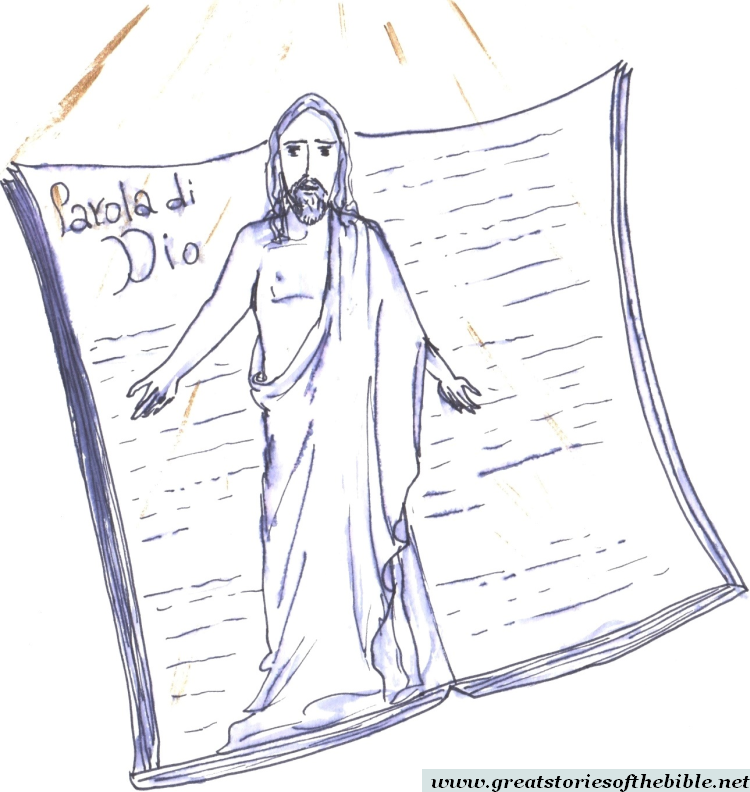First, second and third letter of John
God is love
The three letters of John are probably by one of the disciples of his community (see the «We» in John 21,24), who writes after the composition of John’s gospel (therefore at the end of the I century AD) and who qualifies himself as «presbyter» (2John 1; 3John 1). The motivation for writing the 1John (a homily) and the 2John (a real letter, addressed to an anonymous Church called «the chosen Lady»: 2John 1) is the presence of «many deceivers have gone out into the world, those who do not confess that Jesus Christ came in the flesh» (2John 7). They probably were gnostic tendencies present in John’s communities, that exaggeratedly emphasized the apostle’s attention about Christ’s divinity, up to rejecting His incarnation and humanity. The consequences of those doctrines are relevant: the body is not important or even detrimental to the eternal salvation (this can lead both to extreme vices or asceticism); no more room for charity towards the neediest and humblest brothers/sisters (in material wealth and culture). Therefore, the author of the letters particularly insists on the theme of Christ’s free and benevolent love to men and women (“agápē“), up to the real pouring out of His blood; a love which has to produce the same attitude towards the neighbors. «By this we know love, because he laid down his life for us. And we ought to lay down our lives for the brothers. But whoever has the world’s goods, and sees his brother in need, and closes his heart of compassion against him, how does the love of God remain in him? Little children, let us not love in word only, neither with the tongue only, but in deed and truth» (1John 3,16-18). Instead, who received the «Word of life», through Jesus’ person, His deeds, His behavior, forms a communion of love and «joy» with Him, the Father, the brothers/sisters. «That which was from the beginning, that which we have heard, that which we have seen with our eyes, that which we saw, and our hands touched, concerning the Word of life (and the life was revealed, and we have seen, and testify, and declare to you the life, the eternal life, which was with the Father, and was revealed to us); that which we have seen and heard we declare to you also, that you also may have fellowship with us. Yes, and our fellowship is with the Father, and with his Son, Jesus Christ. And we write these things, that our joy may be fulfilled» (1John 1,1-4). 
«Beloved, let us love one another, for love is of God; and everyone who loves is born of God [he/she is really His child: see 1John 3,1-2], and knows God. He who does not love does not know God, for God is love. By this God’s love was revealed in us, that God has sent his one and only Son into the world that we might live through him. In this is love, not that we have loved God, but that he loved us, and sent his Son as the atoning sacrifice for our sins. [...] We love, because he first loved us. If a man says, “I love God,” and hates his brother, he is a liar; for he who does not love his brother whom he has seen, cannot love God whom he has not seen. This commandment we have from him, that he who loves God should also love his brother» (1John 4,7-10.19-21). The real love is different from «lust», the desire for possession that pushes to sin and «pride» for something that passes away: sensual pleasure, wealth, the arrogance of the ones that only trust in themselves. The monks found in vows of their profession (chastity, poverty, obedience) an antidote to the three lusts that John points out. «Do not love the world, neither the things that are in the world. If anyone loves the world, the Father’s love is not in him. For all that is in the world, the lust of the flesh, the lust of the eyes, and the pride of life, is not the Father’s, but is the world’s. The world is passing away with its lusts, but he who does God’s will remains forever» (1John 2,15-17).
The third letter to John is addressed to «Gaius» (v. 1), as a recommendation for «Demetrius» (v. 12) the missionary, who probably is to come in his community. In the background we find «Diotrephes» (v. 9), who instead prevents the arrival of any itinerant preacher, even those who were sent by the «presbyter». The text is short and so it does not lead us to unambiguous interpretations; however, we can guess in the letter two different ways of exercising authority in the Church. In Paul’s pastoral letters and in the ones by Ignatius of Antioch we read about a well-defined hierarchy that rules the community in what concerns morals and the deposit of the Faith. It is Diotrephes’ attitude: with his authority, he protects the local Church from potentially harmful external infiltrations (e.g. the gnostic tendencies we wrote about above); John, instead, does not recognize human teachers, but only the Christ who communicates the truth in the hearts of the believers through His Spirit. «These things I have written to you concerning those who would lead you astray. As for you, the anointing which you received from him remains in you, and you do not need for anyone to teach you. But as his anointing teaches you concerning all things, and is true, and is no lie, and even as it taught you, you remain in him» (1John 2,26-27). The history of the Church tells us that the first of the two models prevailed, because it was more efficient in defending the right doctrine against heresies.
In the next post we will examine the letter of Jude.